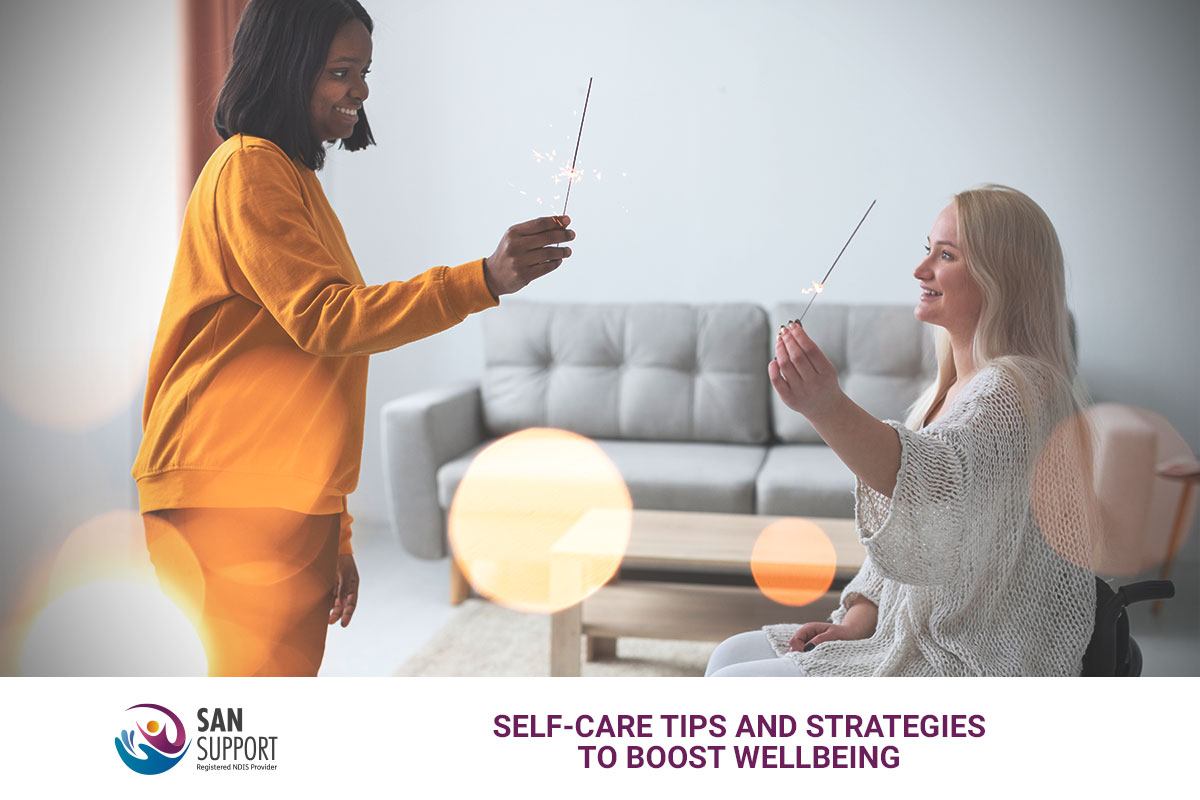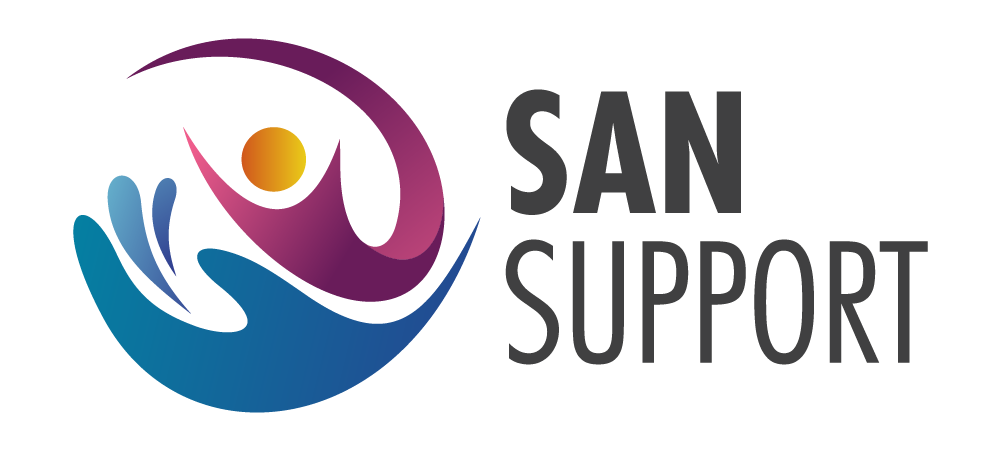
Looking after your mental, emotional and physical health is essential especially when you are managing the everyday challenges of living with a disability. At SAN Support, we understand that self-care is a crucial part of wellbeing and independence for NDIS participants across Australia.
Whether you are navigating your first NDIS plan or building your long-term supports, incorporating self-care into your routine can help you feel more balanced, confident and in control. In this guide, we explore simple self-care strategies tailored for people of all abilities, including those supported through the National Disability Insurance Scheme (NDIS).
Why Self-Care Matters for NDIS Participants
Self-care is not just about pampering yourself it is about meeting your needs, managing stress and improving your quality of life. As an NDIS participant, self-care supports your overall wellbeing and helps you make the most of your plan and services.
By prioritising your health and happiness, you can:
- Boost your physical and emotional resilience
- Improve daily functioning and independence
- Reduce feelings of overwhelm and burnout
- Enhance your connection with support workers, carers and community
At SAN Support, our disability services encourage a holistic approach to care. That means we support you not only with your goals, but also with the strategies that help you thrive.
Mindfulness and Relaxation Techniques
Mindfulness is a powerful tool that supports emotional regulation, focus and inner peace. For many people with disability, anxiety, over stimulation, or stress can affect daily life. Practicing mindfulness helps bring your attention to the present moment and calm the body.
Techniques to try:
- Deep Breathing Exercises: Inhale for 4 seconds, hold for 7 seconds and exhale for 8 seconds.
- Guided Meditation: Visualise a peaceful place, such as a beach or garden, while focusing on your breathing.
- Progressive Muscle Relaxation: Gently tense and release muscles from your toes to your head.
Tip: Make mindfulness part of your daily schedule, such as during your bedtime routine or after lunch. It is simple, free and can be done anywhere.
Physical Activity for All Abilities
Regular physical activity benefits both body and mind. It improves mood, boosts circulation, reduces stress and supports mobility. At SAN Support, we encourage all participants to explore movement options that feel safe, accessible and enjoyable.
Ideas for different abilities:
- Able-bodied participants: Walking, stretching, bike riding, or gentle workouts at home.
- Wheelchair users: Seated workouts, wheelchair cardio, or adapted sports like wheelchair basketball.
- Low-mobility participants: Seated yoga, resistance band training, hydrotherapy, or aquatic exercises.
You do not need to join a gym or have special equipment. Moving your body in any way even for 10 minutes makes a difference.
Healthy Eating to Support Daily Energy
What you eat plays a big role in how you feel. Healthy eating for NDIS participants supports energy levels, brain function and overall wellbeing. With the right nutrition, you are more likely to stay focused, manage fatigue and feel motivated.
Simple nutrition tips:
- Eat more fruits and vegetables: Try easy options like apples, bananas, cucumber slices, or frozen berries.
- Add lean proteins: Include eggs, tofu, legumes, fish, or grilled chicken in your meals.
- Switch to whole grains: Choose brown rice, wholegrain bread, or oats for lasting energy.
- Drink more water: Stay hydrated by carrying a water bottle or swapping sugary drinks for herbal tea.
Planning meals or asking for help with grocery shopping and meal prep can make healthy eating much easier.
Sleep and Rest: Recharge and Recover
Sleep hygiene is essential for physical recovery, mental clarity and emotional balance. Many NDIS participants experience sleep challenges from disrupted routines to anxiety-related insomnia. Creating a consistent sleep schedule can improve both your wellbeing and daily functioning.
How to improve sleep:
- Create a calming bedtime routine: Listen to music, read, or take a warm bath to wind down.
- Avoid screens before bed: Limit phone, TV and tablet use for an hour before sleeping.
- Keep your room restful: Make your sleeping environment cool, dark and quiet.
If you are struggling with sleep, speak with your support coordinator or healthcare provider for help adjusting your routine or exploring specialist support.
How SAN Support Encourages Wellbeing
At SAN Support, we do not just deliver NDIS services we focus on your wellbeing and personal growth. Whether you are working with a support coordinator, accessing in-home care, joining community events, or exploring Supported disability accommodation (SDA), our team takes a person-centred approach to your care.
We believe in walking alongside you encouraging self-care, independence and choice at every step of your journey.
Final Thoughts
Self-care for NDIS participants is not a luxury it is a key part of your independence and wellbeing. Whether you are practicing mindfulness, making healthy food choices, staying active, or improving your sleep routine, every small step supports a better quality of life.
With the right support from a trusted NDIS provider like SAN Support, you are never walking the journey alone. We are here to help you take control of your health, your routine and your future.Ready to live life your way? Prioritise self-care because your wellbeing matters.
